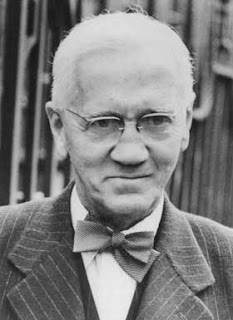SIR ALEXANDER FLEMING
Physician (1881-1955)
Sir Alexander Fleming was a researcher and pharmacologist. His best accomplishments are the revelation of the protein lysozyme in 1923 and the anti-infection substance penicillin from the parasite Penicillium notatum in 1928, for which he shared the Nobel Prize in Physiology or Medicine in 1945 with Howard Walter Florey and Ernst Boris Chain. In 1999, In Time Magazine name Fleming one of the 100 most notable individuals of the twentieth Century for his disclosure of penicillin, and expressed, "It was a revelation that would change the course of history.
 |
| Sir Alexander Fleming (1881-1955) |
He was brought into the world on sixth of August 1881 at Lochfield close to Darvel in Ayrshire, Scotland. He was the child of Hugh Fleming. His dad kicked the bucket when Alexander was only seven year old. He went to louden Moor School, Darvel School, and Kilmarnock Academy and after that he went London to fill in as a transportation representative. He went through four years in a transportation office and after that moved to St. Mary' Medical school, London University. He qualified with unique excellence in 1906 and started research at St. Mary's under the direction of Sir Almroth wright; a pioneer in immunization treatment. He got M.B.B.S. (London), with Gold Medal in 1908, and turned into a speaker at St. Mary's until 1914. He was chosen Professor of the school in 1928 and Emeritus Professor of Bacteriology, University of London in 1948. He was chosen Fellow of the Royal Society in 1943 and knighted in 1944.
By 1942, penicillin was delivered as unadulterated compound, yet at the same time hard to come by and not for accessible for clinical use. When Fleming utilized the initial not many examples from the Oxford group to treat Harry Lambert who had streptococcal meningitis, the effective treatment was a significant information, especially advocated in The Times. In any case, Wright was somewhat astounded as the pioneers Fleming and the Oxford group were not referenced, however Oxford was credited as the wellspring of the medication. Wright composed a letter to the proofreader of The Times, which excitedly talked with Fleming. In any case, Florey restricted the Oxford group such media inclusion. As a subsequent, just Fleming was broadly advertised in the media, which prompted the misinterpretation that he was altogether answerable for the disclosure and improvement of the drug. Fleming himself alluded to this occurrence as "the Fleming fantasy."
The mainstream story of Winston Churchill's dad paying for Fleming's schooling subsequent to Fleming's dad spared youthful Winston from death is bogus. As per the life story, Penicillin Man: Alexander Fleming and the Antibiotic Revolution by Kevin Brown, Alexander Fleming, in a letter to his companion and associate Andre Gratia, depicted this as "A wondrous tale." Nor did he spare Winston Churchill himself during World War II. Churchill was spared by Lord Moran, utilizing sulphonamides, since he had no involvement in penicillin, when Churchill became sick in Carthage in Tunisia in 1943. The Daily Telegraph and The Morning Post on 21 December 1943 composed that he had been spared by penicillin. He was spared by the new sulphonamides drug Sulphapyridine, known at the time under the exploration code M&B 693, found and delivered by May and Baker Ltd, Dagenham, Essex – an auxiliary of the French gathering Rhône-Poulenc. In an ensuing radio station, Churchill alluded to the new medication as "This splendid M&B". It is exceptionally likely that the right data about the sulphonamides didn't arrive at the papers on the grounds that, since the first sulphonamides antibacterial, Prontosil, had been a revelation by the German lab Bayer, and as Britain was at battle with Germany at that point, it was thought better to raise British resolve by partner Churchill's fix with a British disclosure, penicillin.
From 1921 until his demise in 1955, Fleming possessed a nation home named "The Dhoon" in Barton Mills, Suffolk.
On 11 March 1955, Fleming passed on at his home in London of a respiratory failure. His remains are covered in St Paul's Cathedral.